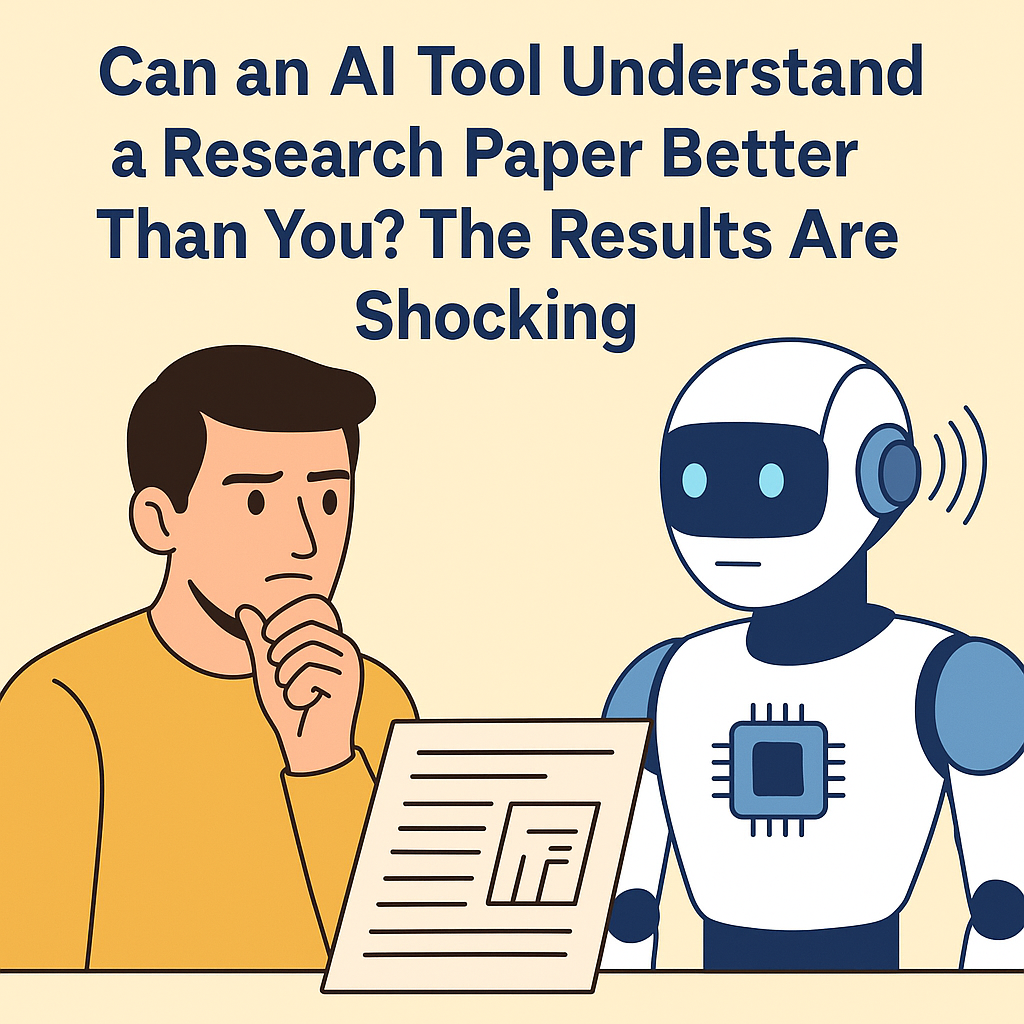
In the world of academia, there's long been a belief that true understanding of a research paper requires time, effort, and human intellect. But with the rise of AI tools for literature review and AI for academic research, that assumption is starting to look outdated. Many students, researchers, and even faculty are now turning to AI to summarize, generate, and analyze academic content—sometimes with results that rival or even surpass human comprehension.
The Rise of AI in Academia
AI has made significant inroads into tasks traditionally reserved for scholars. From AI research paper generators to literature review AI tools, there's a new digital assistant for nearly every stage of the research process. Tools like SciSummary, for example, are designed to digest complex academic content and produce clean, clear, and accurate summaries in seconds.
It raises a serious—and slightly uncomfortable—question: Can these AI tools actually understand scientific papers better than their human users?
Understanding vs. Memorizing: What Does AI Actually “Know”?
Let’s be clear: AI does not “understand” in the same way humans do. It doesn’t form beliefs or draw conclusions in a conscious sense. However, AI for paper writing can extract structure, recognize key findings, and condense information faster and sometimes more accurately than many readers.
That means when you're scanning a dense 30-page paper filled with equations, figures, and jargon, an AI lit review tool might actually highlight the takeaways with more precision than you would on your first pass.
Why Students Are Turning to AI Literature Review Tools
Graduate students and PhD candidates are embracing these tools at a rapid pace. Many cite time savings, clarity, and efficiency as their main reasons. With tools that offer free AI for research paper writing, students can avoid the dreaded "literature logjam" that often delays theses and dissertations.
But it’s not just about speed. The best AI for literature review doesn’t just summarize—it connects dots between sources, identifies gaps, and suggests related works. These are tasks that would typically take hours or even days for a human researcher.
But Is It Better Than a Human?
This is where the controversy begins. On one hand, AI for academic research is empowering students who might struggle with English, who are juggling multiple papers, or who just need a quick briefing. On the other hand, some faculty argue that these tools are encouraging shallow reading habits, and that relying on AI literature review tools leads to a surface-level engagement with texts.
The truth lies somewhere in between. For routine reading, AI can absolutely offer a strong initial grasp—especially when powered by high-quality models trained on academic language. In fact, in blind tests, many readers couldn’t tell whether a summary was generated by a human or a literature review AI tool. And in several cases, the AI versions were more accurate, because they pulled directly from the text without bias or misinterpretation.
The Ethical (and Practical) Questions
If an AI tool for literature review can summarize 50 articles in 10 minutes, where does that leave students who were trained to spend weeks crafting that same synthesis manually? If a scientific paper citation generator gets references perfect every time, should students still be tested on citation formats?
These are valid questions. The academic world is grappling with how to integrate these tools responsibly—without losing the foundational skills that define good research.
Conclusion: Not Better, But... Useful?
So, can an AI for papers actually understand a research paper better than you? The answer might be yes—at least in terms of identifying structure, extracting data, and generating summaries. But when it comes to critical thinking, synthesis, and innovation, humans still lead the way.
That said, ignoring AI in academic work is no longer an option. With the availability of free AI for research paper writing, and increasingly powerful AI literature review tools, the smart move isn’t to resist—but to learn how to use these tools effectively and ethically.
At the end of the day, AI is not replacing researchers—it’s augmenting them. And in a world overflowing with information, that’s not just helpful. It’s necessary.